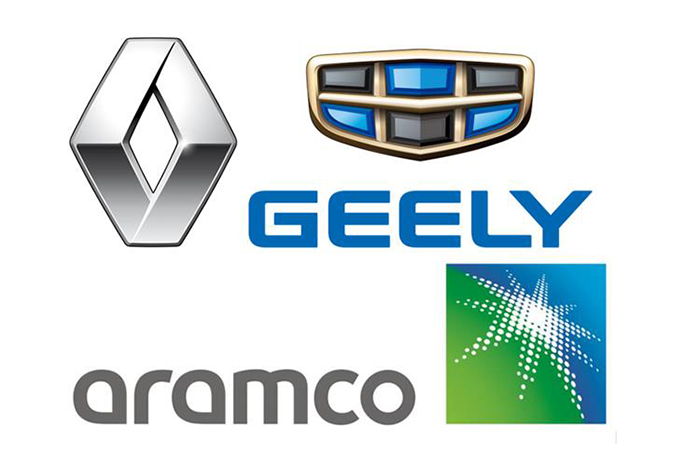Geely, the Chinese automaker, has announced its partnership with Renault and Saudi Aramco to develop and supply gasoline engines and hybrid technologies. The three companies have reached an agreement to establish a powertrain company with a production capacity of more than 5 million “low-emission and hybrid engines and transmissions” annually. This joint venture will contribute to the research and development of powertrain technologies, especially synthetic fuel solutions and next-generation hydrogen technologies.
According to the agreement, Aramco will take a stake of up to 20% in the Geely-Renault powertrain technology venture. This deal extends Geely’s pattern of building partnerships to expand beyond China, following a hybrid gasoline engine development deal with Mercedes-Benz and holding a stake in the German automaker.
The joint venture is expected to employ 19,000 people at 17 powertrain factories and three research and development hubs. Geely has been investing in sustainability and New Energy Vehicles (NEVs) over the years to align with the global trend towards reducing emissions and improving fuel efficiency. The company has set ambitious goals for the development of hybrid and electric vehicles and has been working to establish partnerships and collaborations to further these efforts.
This partnership between Geely, Renault, and Aramco highlights the importance of hybrid and gasoline engines in the global automotive industry. Furthermore, the partnership supports Saudi Arabia’s “Vision 2030” by investing in hybrid and electric vehicles as the Vision 2030 aims to diversify the economy and reduce the country’s dependence on oil.
Geely is pleased to collaborate with Renault and Aramco to develop low-emission and hybrid technologies, which are crucial in today’s automotive industry. The company is committed to investing in sustainable development and NEVs and aims to produce over 1 million electric and hybrid vehicles annually by 2025. This partnership represents a significant milestone in Geely’s efforts to drive sustainable development and bring new energy to the global automotive industry.


COMMENTS